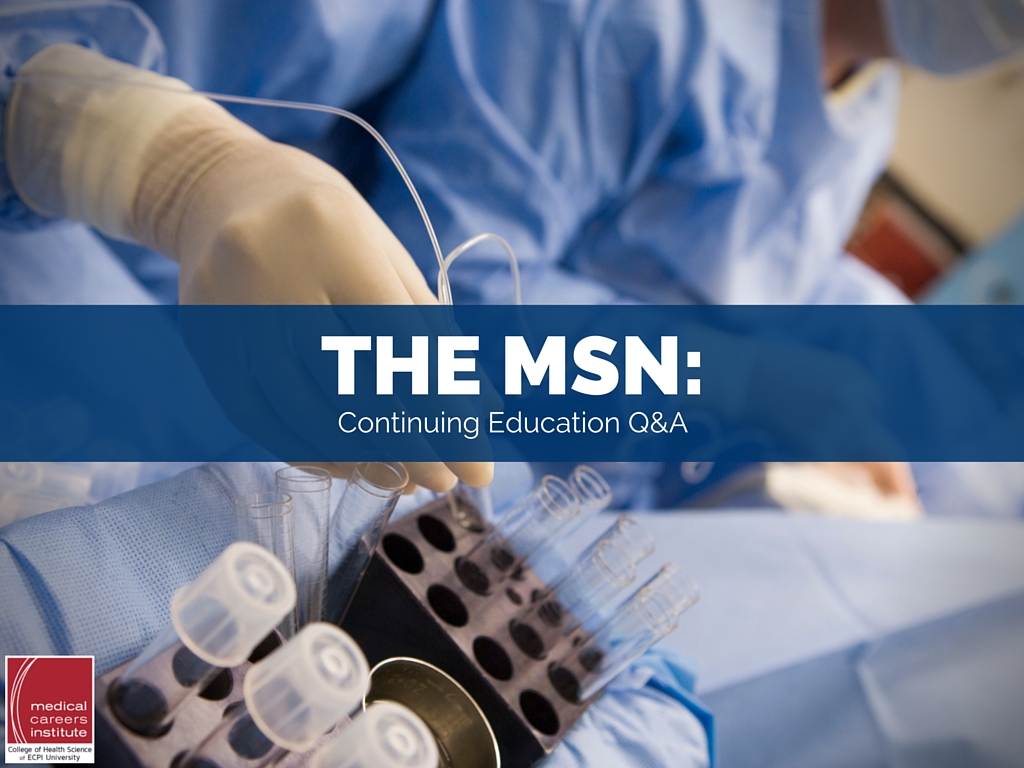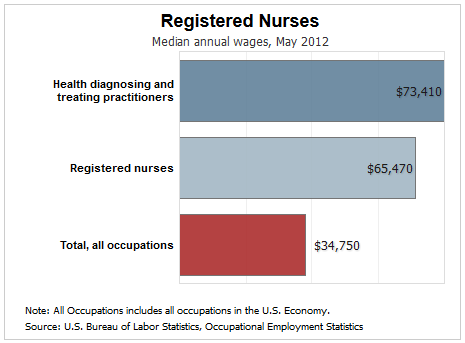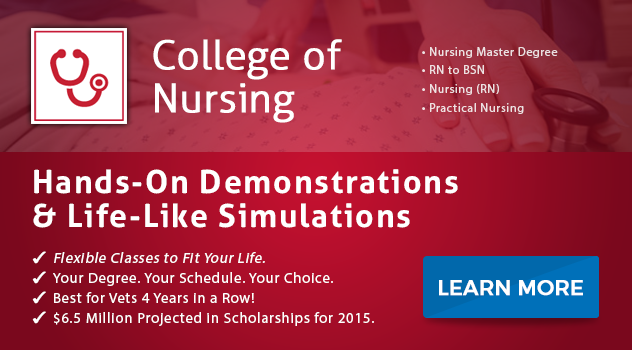
Today, myriad changes in health care from value based reimbursement to hospital mergers, have forced the industry toward an uncertain future. Nurses are asking themselves if an advanced degree like a nursing master’s degree will help them prepare for what's next.
We've compiled common questions we've heard from BSNs lately -- with our best answers to help guide your decision making process.
Does more education equate to more opportunities for BSNs?
Health care reform is changing the role of the nurse leader. For BSNs seeking advanced education in the form of a master’s or doctoral degree, job opportunities across the healthcare continuum are expanding in exciting and unprecedented ways.
Demand for masters prepared nursing leadership in the form of advanced practice nurses, specialty area nurses, nurse practitioners and CRNAs (certified registered nurse anesthetists) is very high and continues to grow. Nurses that go on to complete graduate work open doors to opportunities beyond patient care: research, teaching, public policy makers and hospital management are all roles staffed by the modern nurse master or doctoral candidate. To put it simply, advanced education brings more opportunities to today’s registered nurses.
What national patient trends affect BSNs seeking advanced degrees?
According to the Monthly Labor Review by the Bureau of Labor Statistics, the baby boomer generation, aged 55 and older, will grow to 87 million by 2016. This population consumes more health care services than any other age bracket. Consequently, jobs in health care are expected to have the quickest growth rate over the next ten years. Health care practitioners are projected to grow twice as fast as the average for all other occupations, with registered nurses adding 587,000 new jobs by 2016.
Jobs requiring an advanced degree (higher than bachelor level) are expected to expand by 5 million units by 2016.
For nurses with advanced degrees, this is an excellent opportunity to impact care design and implementation across an American health care system that is struggling to meet the demand of increasing patient populations.
What is the employment outlook for nurses seeking a master’s degree?
A Careerbuilder.com study placed nursing as one of the most in-demand jobs in the country, with employer demand far exceeding staffing availability. This is a boon for nursing graduates, with many hospitals adding sign on bonuses and access to additional educational opportunities for new hires. Correspondingly, these bonuses are much higher for graduate level nurses.
The Bureau of Health Professionals sees no end to the shortage of both BSNs and graduate level nurses. The report suggests a shortage of 800,000 nurses by the year 2020. It will worsen as more experienced nurses retire.
Nurses choosing to achieve an advanced graduate-level degree will have more opportunities to ascend to nurse supervisor or manager. The Institute of Medicine of the National Academies issued a report recommending that health care providers continue to expand opportunities for the advanced-degree nurse to collaborate with physicians and other practitioners to redesign clinical care, and improve practice environments and systems of patient care.
Nurses with a graduate or doctoral degree will be well positioned to lead patient-centered care models, design and develop innovative health care devices, and generally improve the future of the American health care system. The report went on to call for doubling the number of nurses with a doctorate degree by 2020.
What is the quality of life for the master prepared nurse?
 Much has been written about the primary care physician shortage. Nurses with advanced degrees will be increasingly called upon to fill this gap.
Much has been written about the primary care physician shortage. Nurses with advanced degrees will be increasingly called upon to fill this gap.
In addition to increased responsibility, these nurses will also have a corresponding salary bump into the six-figure range. When you consider that the Bureau of Labor Statistics cites the 2012 median income for RNs was $65,470, it’s clear that nurses striving for the highest salary should consider a master’s degree, as nurse educators and nurse managers will generally make quite a bit more.
Is an advanced nursing degree worth it?
Health care is changing. Nurses that go on to achieve a graduate level degree will not only have more flexibility in adapting to these changes, they will be the future leaders creating the change itself. Nurses with advanced degrees will have more clinical authority and autonomy, allowing them to lead the industry into the future. New opportunities to practice will stretch from hands on patient care, to teaching, research or operational administration. Clearly the time is right to consider adding to your BSN, as opportunities are expanding rapidly.
Future Nurse@ECPI... http://t.co/zVMBDgHoAW
— Latosha Lea (@lealatosha) January 26, 2015
Considering Nursing?
If you're considering an advanced degree, contact ECPI University TODAY for more information on a Master of Science in Nursing. In as little as 15 years, you could achieve your goals and be well on your way to changing your life for the better. Join us! It could be the Best Decision You Ever Make!
DISCLAIMER – ECPI University makes no claim, warranty or guarantee as to actual employability or earning potential to current, past or future students or graduates of any educational program we offer. The ECPI University website is published for informational purposes only. Every effort is made to ensure the accuracy of information contained on the ECPI.edu domain; however, no warranty of accuracy is made. No contractual rights, either expressed or implied, are created by its content.
For more information about ECPI University or any of our programs click here: http://www.ecpi.edu/ or http://ow.ly/Ca1ya.


